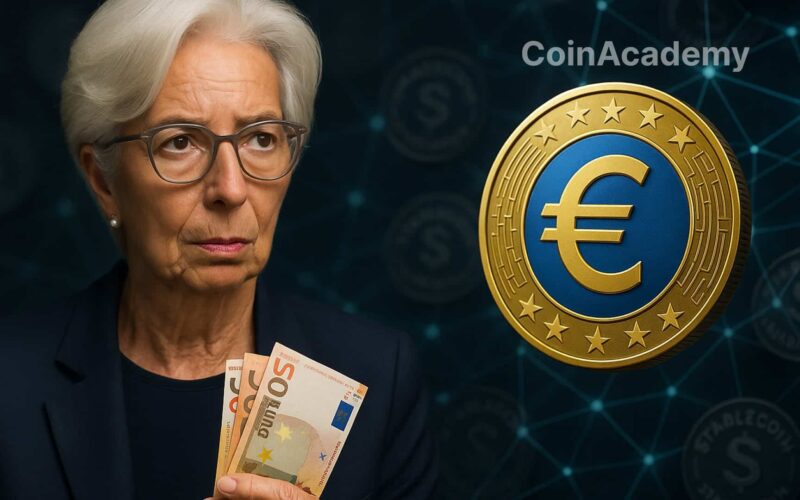The ECB has confirmed that the digital euro will complement cash without replacing it, aiming to preserve Europe’s strategic autonomy in payments.
Preserving Control
As the financial world rapidly shifts towards digital, the European Central Bank remains grounded. The message is clear: cash will not disappear. Let’s hope it’s not an empty promise.
Facing the rise of stablecoins, cryptocurrencies backed by fiat currencies like the dollar, the ECB is speeding up on the digital euro front. The goal is simple: prevent private solutions from taking over payments in Europe.
But for Piero Cipollone, a board member of the ECB, it’s not about pitting physical currency against digital. ‘Cash is here to stay,’ he insists. The digital euro will not replace bills and coins but complement them. The idea? Preserve Europe’s strategic autonomy in payments.
A Digital Euro… But for Whom?
Despite ambitions, public interest remains lukewarm. An internal ECB study in March revealed that Europeans were not very keen on adopting the digital euro. When asked how to invest €10,000, the portion allocated to this future currency remains marginal. In other words, citizens do not yet see its usefulness.
And yet, for the ECB, failing to develop this digital euro would be a strategic mistake. Cipollone reiterates: ‘Without the digital euro, Europe would fall behind, lose sovereignty, and leave the field open to foreign currencies, often American, to dominate usage.’
Cash Remains Plan B and Safety Net
Cipollone forcefully reminds us: in a crisis, it’s always cash that keeps things running. Digital breakdown, cyberattack, blackout? Bills always work. Maintaining access to cash is a guarantee of economic resilience.
In the long run, Europeans should have a wallet with three elements: bills, coins, and a digital euro. All with the same legal status. All available ‘at any time, in any place,’ promises the ECB.
The Threat of Stablecoins in the Background
The debate is broader than it seems. On Thursday, another senior ECB advisor, Jürgen Schaaf, sounded the alarm: without global coordination on stablecoins, the dollar could crush the euro. He calls for strong regulation and discusses various options: stablecoins pegged to the euro, innovative blockchain uses, and of course, the digital euro as a public response.
An Issue of Monetary Sovereignty
Behind the technical question of the digital euro lies Europe’s economic sovereignty. In a context where payments are digitizing, cryptocurrencies are becoming mainstream, and the dollar continues to dictate rules, the ECB is trying to defend a space of monetary freedom for Europeans.




